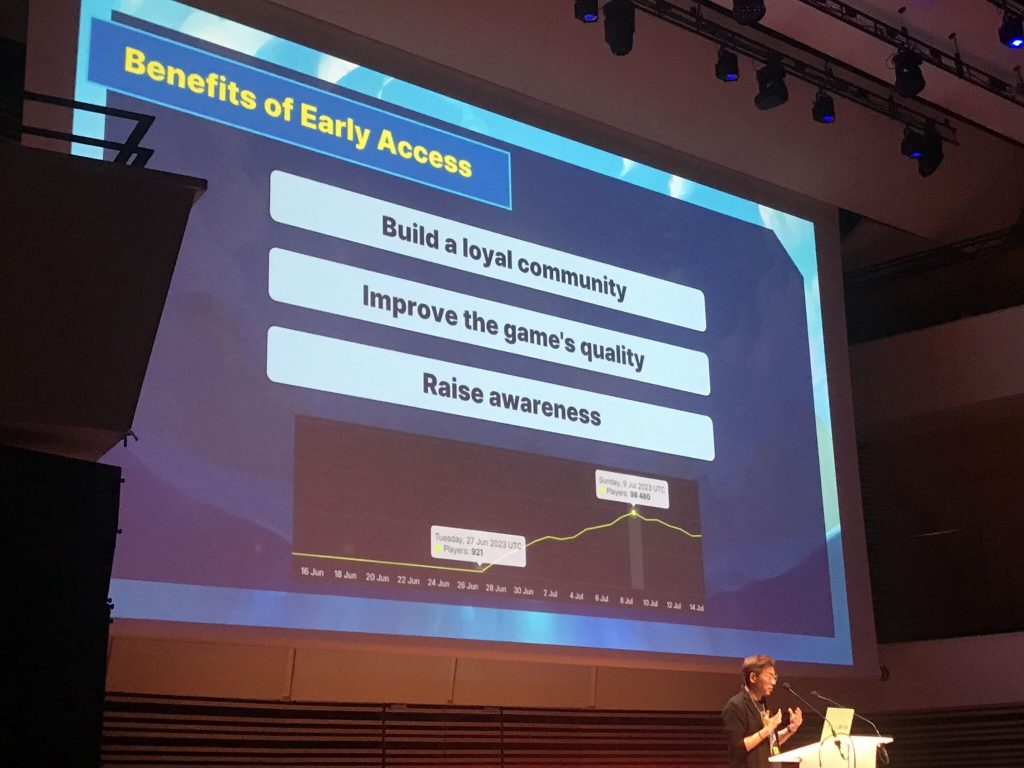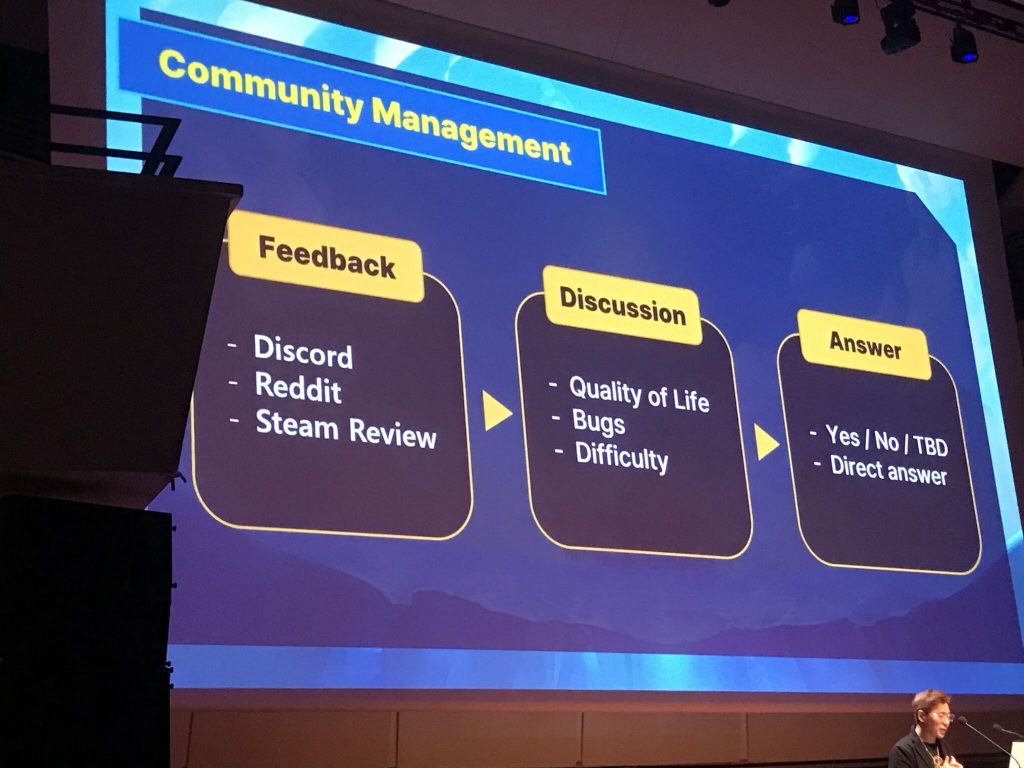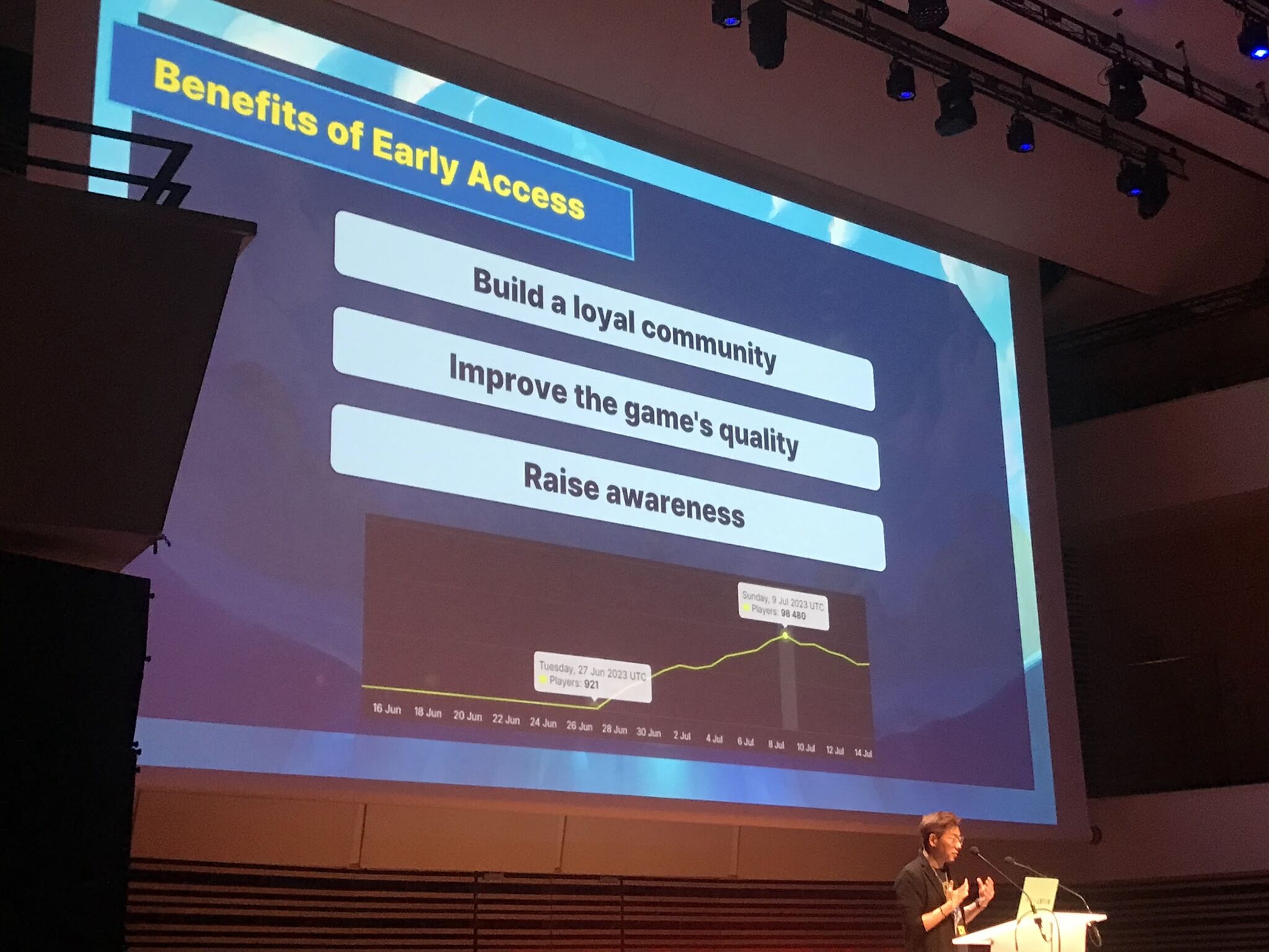What’s Dave the Diver’s Early Access secret?

Dave the Diver is one of break-out hits from 2023. If you haven’t heard of it, it’s a surprising mix of mechanics – fishing/collecting during the day and running a restaurant at night, all with a pixel-art aesthetic. So I was very happy to check out Jaeho Hwang postmortem talk about it at Gamecamp. Jaeho is Game Director at the Korean studio Mintrocket / NEXON KOREA.
Interestingly , it turns out that the original game concept was to be a mobile game in collaboration with National Geographic around taking photos of fish, but this version of the project got scrapped for some reason.
Most of the talk was focused on how the studio used the early access period on Steam to polish and promote the game into the “surprise” hit it became. Early access allowed the studio to improve the game’s quality, raise awareness, and build a loyal community.
The last point is critical, because of how hard it is to break out from the noise. There were over 14000 games released on Steam last year. That means on any given day you might release your game, there will be around 37 others to compete with!
Jaeho insisted on the strategy of using early access to create a high-quality product, even at the expense of making the game shorter with less features.

To raise the quality of the game, Mintrocket gathered feedback from players and then prioritized issues that were creating the most friction for users early on. This meant bugs, “quality of life” issues such as annoying interfaces, and game balancing (too difficult or too easy). When multiple players complained about the same bug or poor interface, they would focus on fixing it. On the other hand, when players would ask for more content, they would put that off for later releases.
To get that feedback, they used an in-game survey and dedicated Discord which they could talk to the players directly, as well as sorting through reviews from Steam and comments on Reddit. Finally, they would make sure to thank users for their feedback, for example by referencing them in the release notes of new versions.
This seems like a solid approach to early access, and I hope to mimic it on one of our next games at Play Curious!
